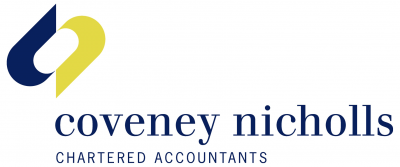Chancellor Rishi Sunak recently delivered his second Budget speech of the year, after the coronavirus pandemic saw a 9.9% fall in GDP and an extra £413 billion in Government spending.
Expectations were for the Chancellor to increase taxes to reservice the UK’s public debt and tackle rising inflation, but instead the Chancellor focused on tweaks and reforms to the tax regime.
Read on for the essential need-to-knows for businesses after the Autumn Budget 2021.
Business rates reform
Especially welcome for businesses to hear was the Chancellor setting out his long-awaited review on business rates, which had threatened four out of five of retailers with closure.
Most notable was a 50% cut to business rates for eligible retail, hospitality and leisure businesses in 2022/23, up to a cap of £110,000.
Additionally, the rate multiplier will be frozen for the next tax year, saving businesses in England a total of £4.6 billion over the next five years, according to the Treasury.
Meanwhile, revaluations of business rates will occur every three years, as opposed every five years as is currently the case, while businesses will be able to claim relief more easily, Sunak said.
R&D tax credit changes
Sunak also announced plans to reform R&D tax reliefs to get Government R&D spending to £20 billion by the end of this Parliament, and edge closer to the Government’s goal of 2.4% of GDP being spent on R&D by 2026/27.
There were two main policy proposals from Sunak.
First, the scope of R&D relief has been expanded to include cloud computing and data costs, to, as Sunak said, “reflect how businesses conduct research in the modern world”.
Second was Sunak’s promise that the Government will “incentivise greater investment here at home” after he revealed around half of all R&D tax relief is currently going to businesses that aren’t actually investing in the UK.
The Chancellor, however, failed to address what the Government will do exactly to address this problem.
Recovery loan scheme deadline extension
Although it wasn’t in the Chancellor’s Budget speech, the recovery loan scheme has been extended as part of the Autumn Budget.
The Government introduced the coronavirus-loan scheme in its Spring Budget 2021 to replace others, including the coronavirus business interruption loan scheme.
The deadline for the recovery loan scheme is currently 31 December 2021 and allows eligible businesses to borrow between £25,001 and £10 million from certain lenders for up to three years.
Businesses are still liable for the loans, but with an upper limit on interest rates at 14.99%, some may find the scheme an attractive option.
At the turn of the year, only small and medium sized businesses will be able to claim a recovery loan, this time to a maximum of £2m.
Businesses will have until 30 June 2022 to claim their loan.
National living wage increases to £9.50
From 1 April 2022, the national living wage will increase from £8.91 an hour to £9.50 – an increase of 6.6%.
While the pay rise did form part of Sunak’s Budget speech, the increase had already been agreed by the Government ahead of time, in response to the proposals from the Low Pay Commission.
Pay policy is essential for businesses to take into account their overheads. Indeed, as Jane Gratton, head of people policy at the British Chambers of Commerce said in reaction:
“There is a limit to how much more firms can continue to absorb rising costs before they have to raise their own prices adding to inflationary pressures.
“The best way to sustainably increase wages is to help firms boost their skills and productivity.”
Talk to us about how we can help your business.

